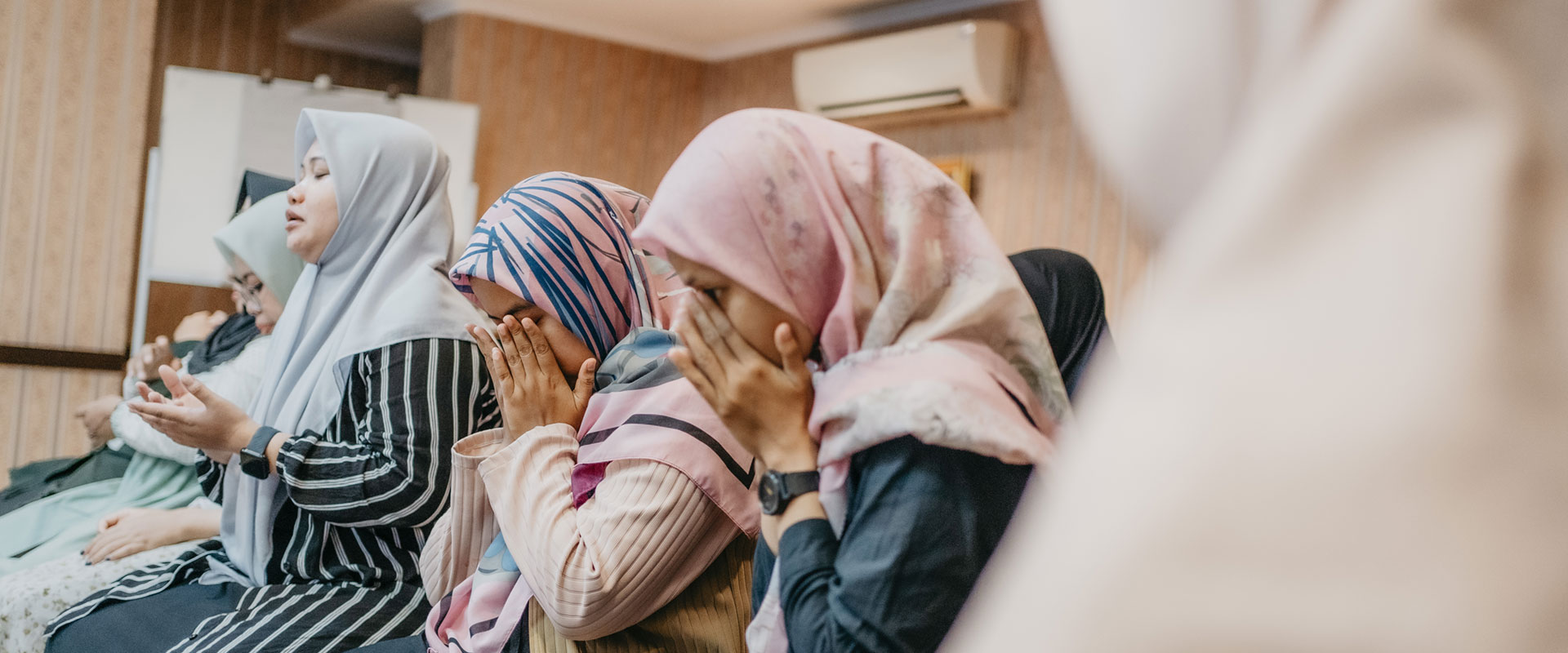Rahima, a religion-based NGO in Jakarta, Indonesia, aims to create a world where justice and equity prevail for all women. Founded in 1999, the organization elevates female scholars—known as ulama—who can advocate for and facilitate the translation of religious texts to enhance justice and fairness for women. To this end, Rahima called Women Ulama Education and Transformation which strives to foster a more equitable society for women.
In February 2024, the organization conducted the first series of the Women Ulama Education and Transformation program, Tadarus I, which was supported by Ipas Collaborative Fund. The Tadarus series is a training program designed to enhance the capacity of women to deconstruct religious text to challenge traditional gender norms. In December 2024, the organization hosted the second series of Tadarus, which was supported by the Government of Canada.
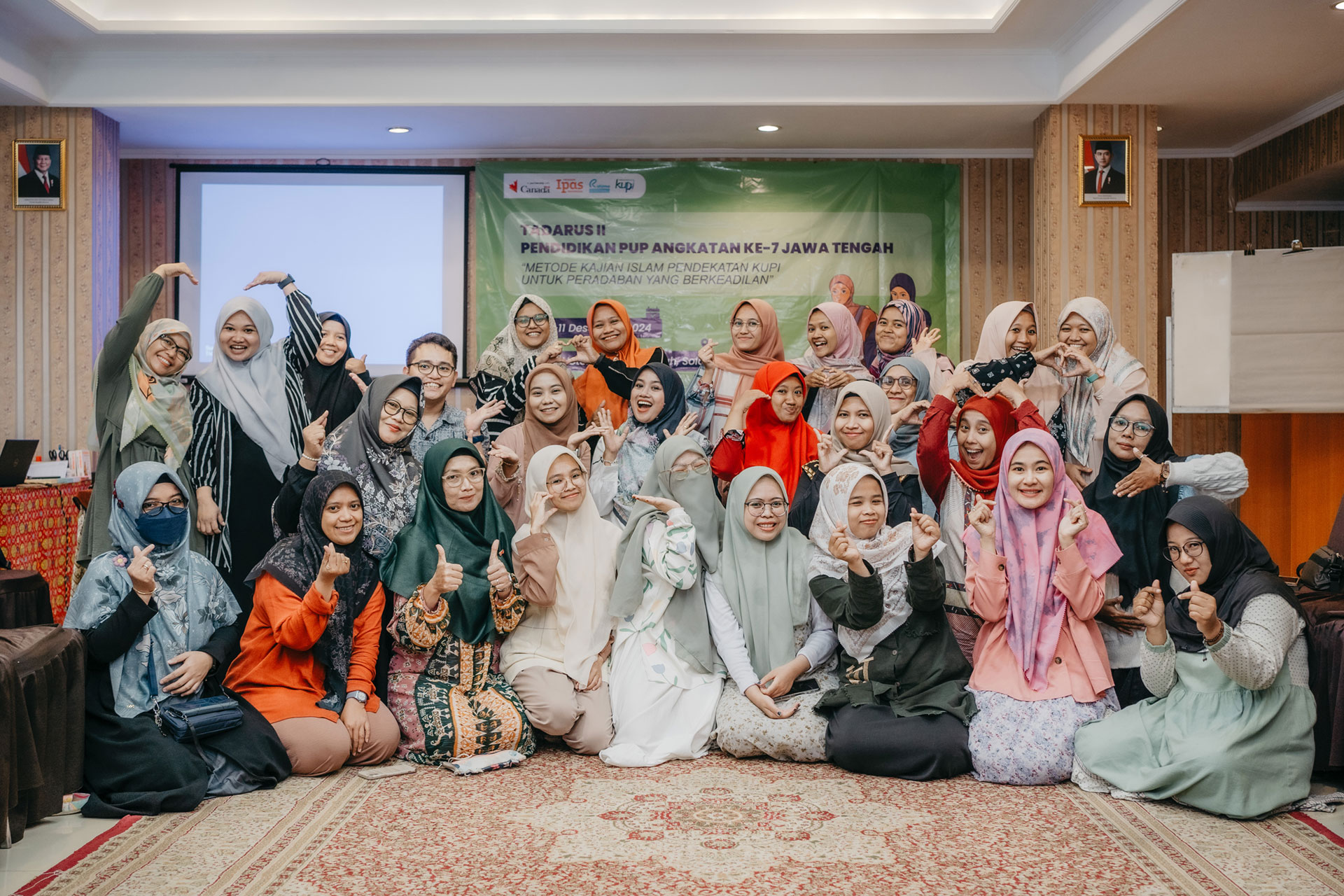
Rahima Director Pera Soparianto stated that the religious understanding developing in society is less favorable toward justice for women. “The objective of this educational initiative is to examine and present religious interpretations that espouse benevolence towards women,” she mentioned.
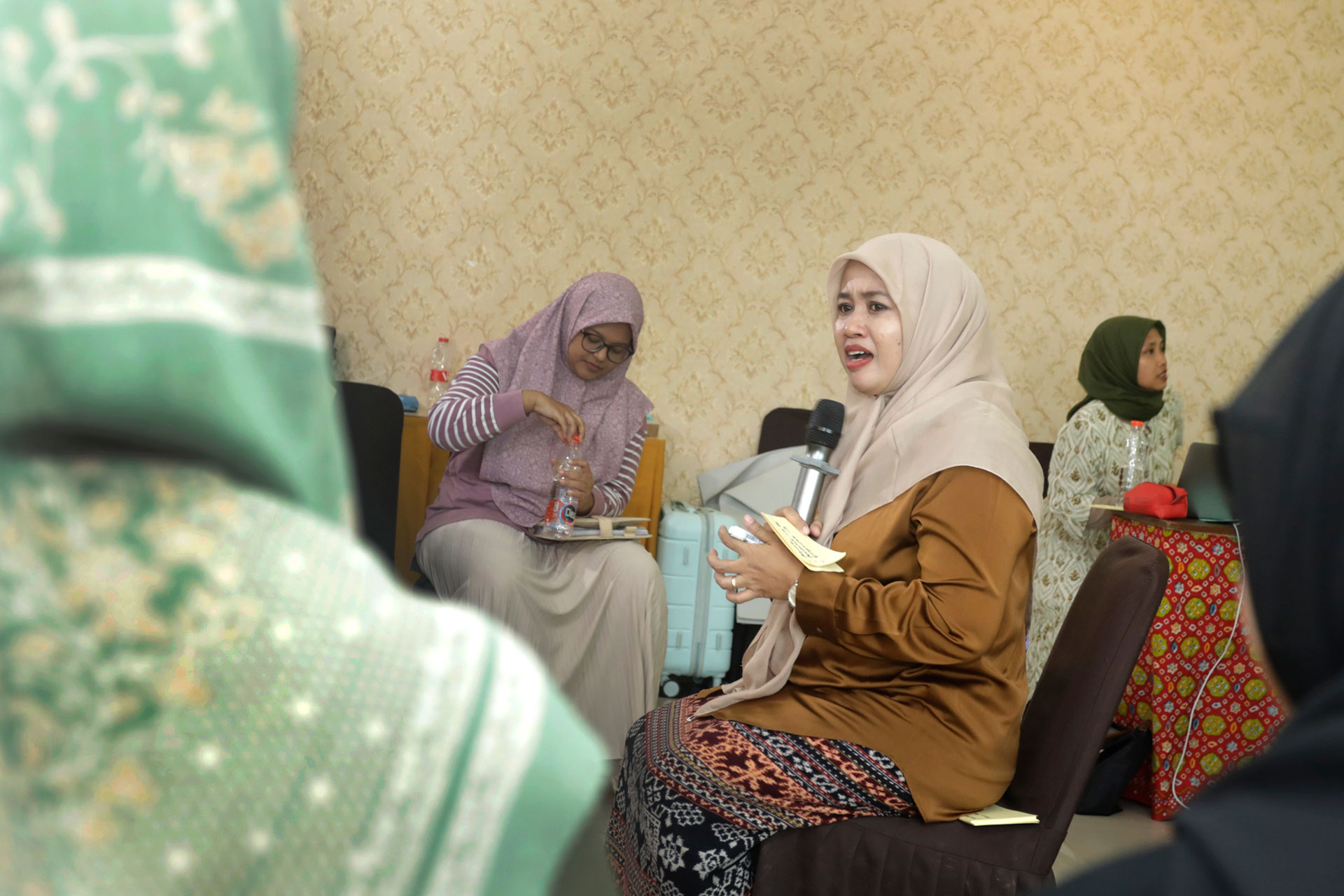
Rahima Director Pera Soparianto deliver the session in Tadarus 2 [Photo by Nihil Pakuril © Ipas Indonesia].
She added that one way to achieve this is by re-examining texts that are frequently used to legitimize discriminatory practices against women. “Injustice and violence against women are the result of social and gender norms that have been historically attached to women,” she stated.
She emphasized the importance of producing knowledge and conducting studies on religious texts that convey messages of justice for women. “This is also a primary responsibility of women scholars,” she added.
Pera states that, in analyzing the gender justice aspects of the religious text, Rahima aligns with the KUPI (Indonesian Women Ulama Congress) principles of ma’ruf (social good), mubadalah (equality and cooperation), and true justice.
Ainun Jamilah, one of the Tadarus participants, stated that she felt a sense of confidence following the first Tadarus. She further elaborated that her status as the only veiled woman in the education program for women scholars contributed to her sense of acceptance and assurance regarding the safety of her personal narrative within the confines of the class. This, in turn, augmented her outward confidence.
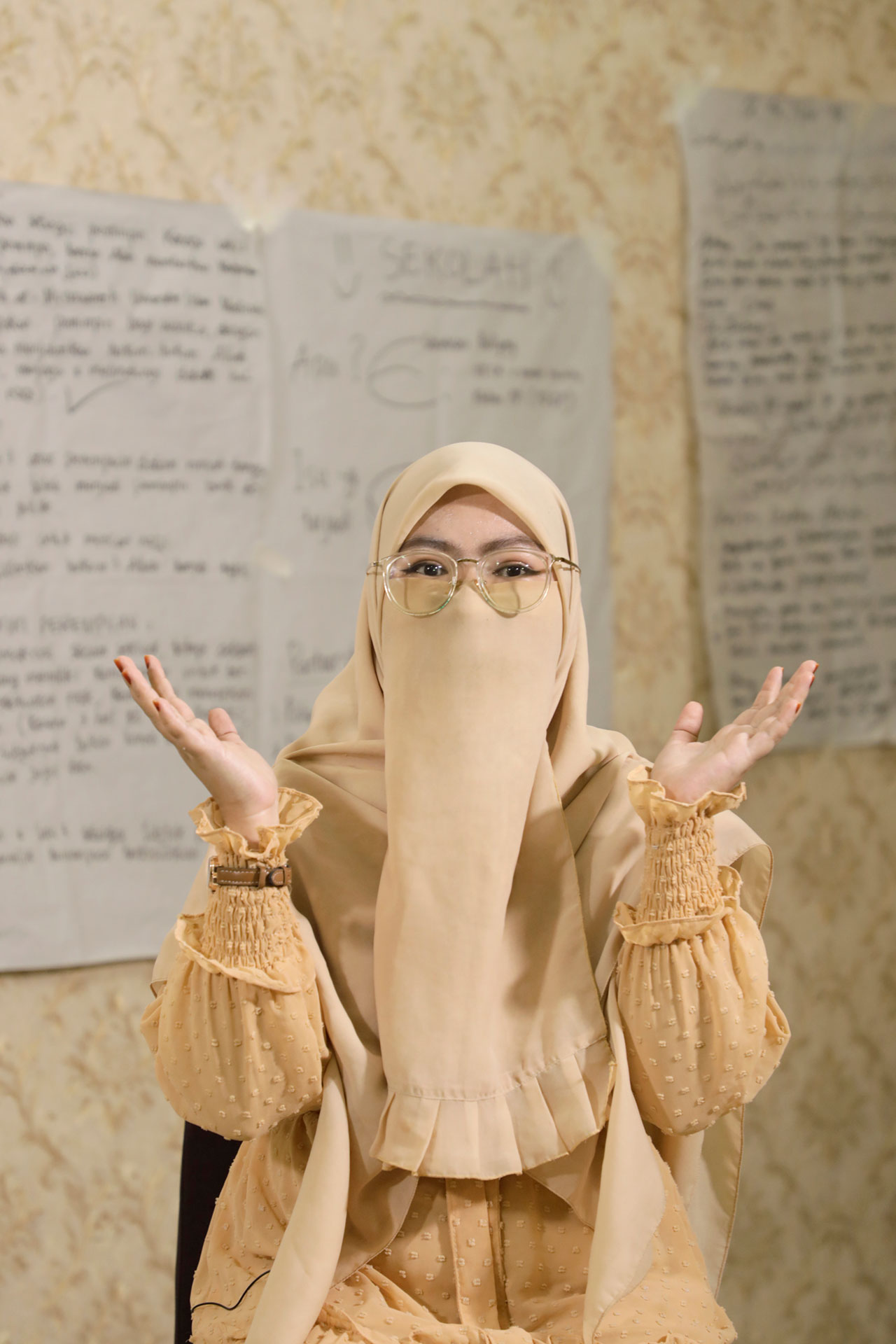
Ainun Jamilah a Tadarus participant [Photo by Nihil Pakuril © Ipas Indonesia].
“For me, the Women Ulama Education and Transformation, engaging with texts through a lens of gender justice, has partially alleviated my previous disappointment. One example of a mainstream interpretation that I previously found disappointing is the notion that women are the source of fitnah [slander]. This was one of the reasons for my initial disappointment, before I read the gender-justice interpretation. I am grateful to have found an answer,” she added.
Another participant and teacher, Zuhail Widad, said she started making content by inviting her students to produce. “In my place there are around 1,500 students. I started from there. From the first provision of Tadarus I [invited students] to make an educational video about violence. There are about 500 educational videos produced by students about violence, bullying and so on, which have been circulating on social media,” Zuha explained.
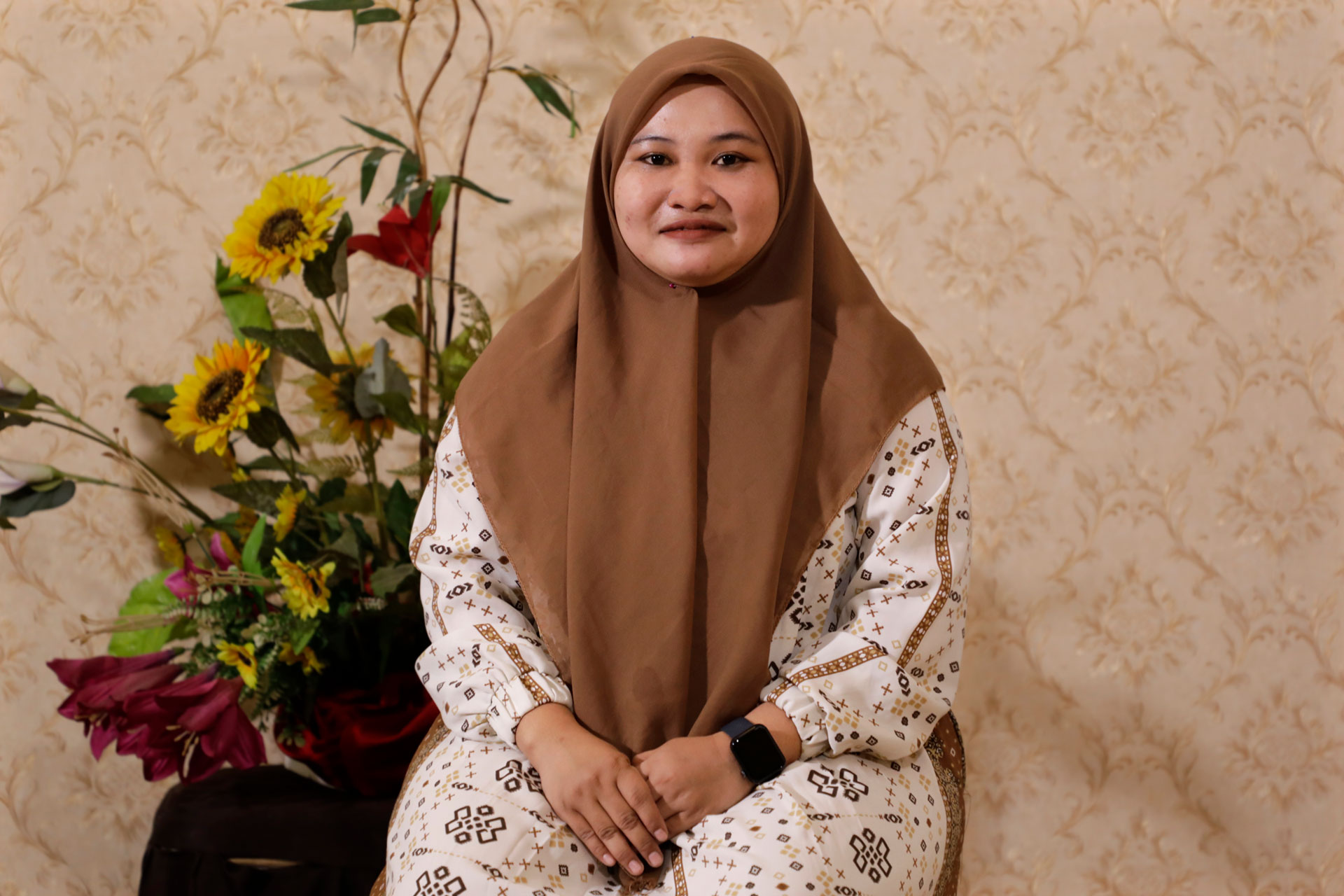
Zuhail Wahid shared her experience in raising awareness about gender justice [Photo by Nihil Pakuril © Ipas Indonesia].
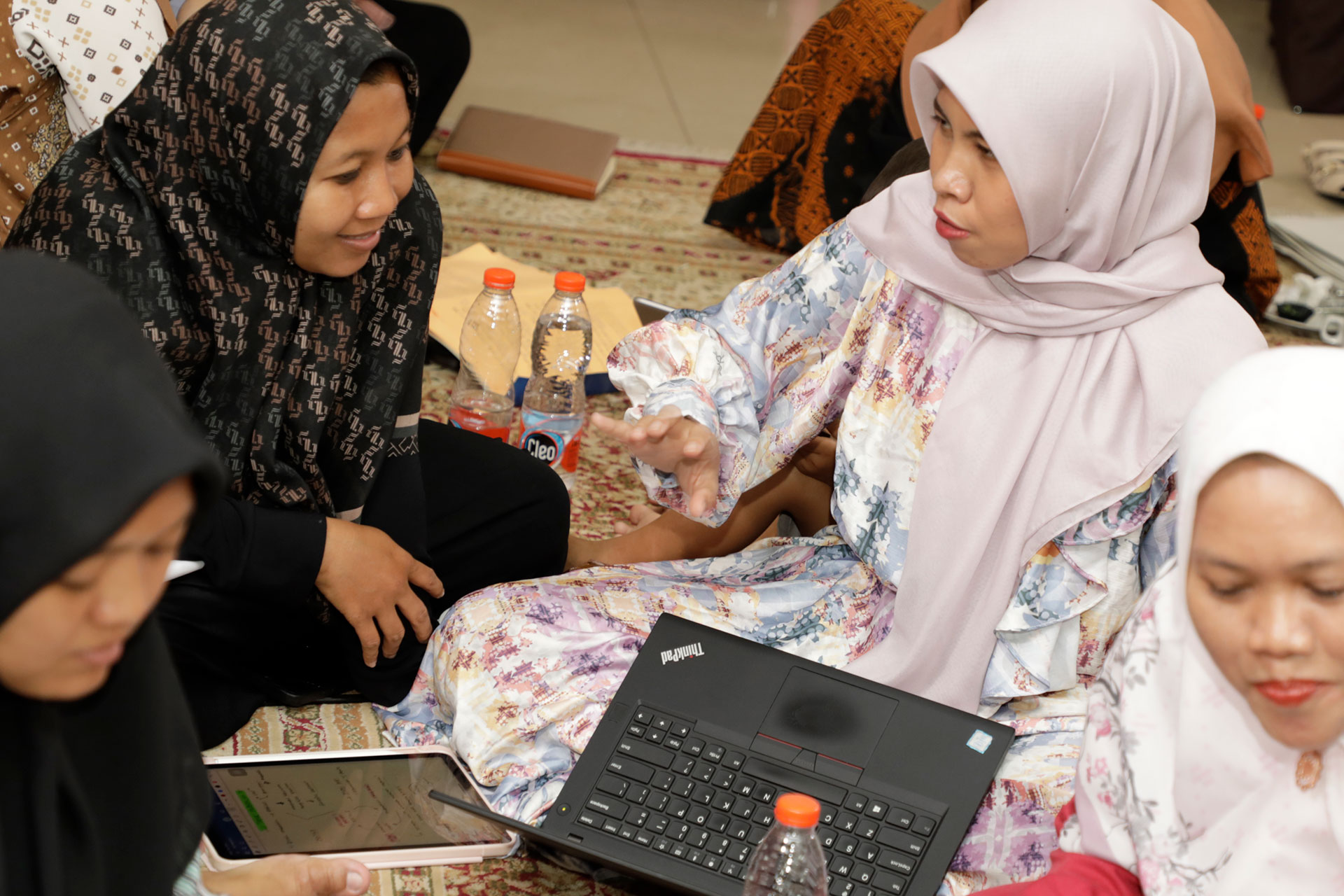
Himatul Ulya discussed with other participants in Tadarus 2 [Photo by Nihil Pakuril © Ipas Indonesia].
She also acknowledges that it is crucial for women especially who work in the education sector to give interpretations of religious text from a more gender justice perspective to the students. “A religious educator must be able to introduce dynamic interpretations with context. Because children nowadays, if it’s utopian or dreamy, they usually don’t believe it,” she concludes.
Pera highlights that Rahima’s partnership with Ipas Indonesia offers numerous benefits, particularly in the context of Central Java. “We receive support for SRHR issues that are relevant to female scholars. Each training session includes reinforcement through Zoom for reproductive health issues that require further attention,” she mentions.
She also highlights how the partnership with Ipas Indonesia has helped Rahima expand their network. “We were connected with Ipas partners in Central Java who are engaged in SRHR issues. Also, we collaborate with all Ipas network partners at the local, national, and global levels. We hope that this positive work will strengthen future collaborative efforts,” she finished.


